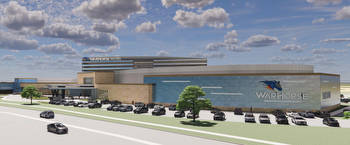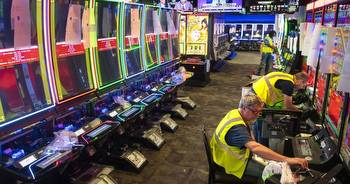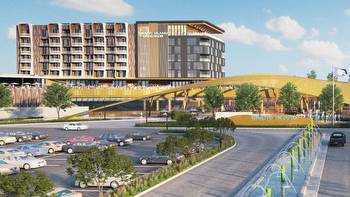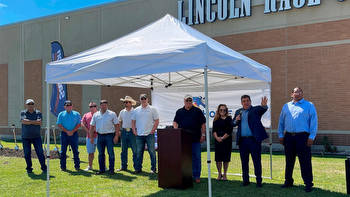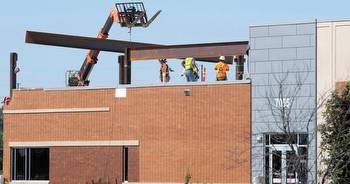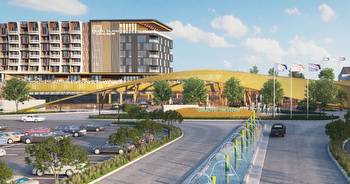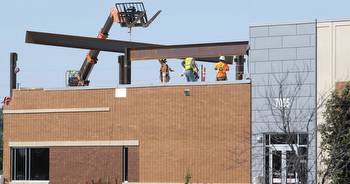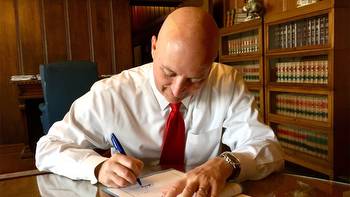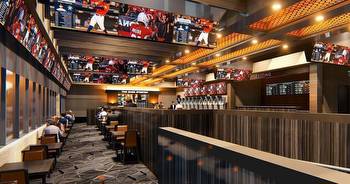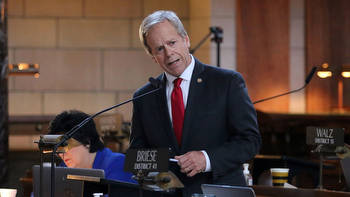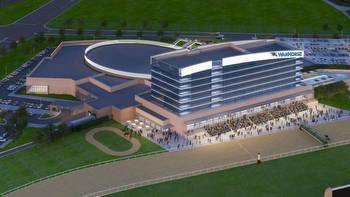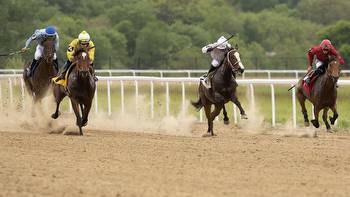Casino startup price in Nebraska: $1 million
Companies that want to open a casino at a Nebraska horse racetrack will have to pony up $1 million for a license.
That's one of the requirements of the rules released Friday afternoon by the Nebraska Racing and Gaming Commission.
The 67-page document lays out everything from license applications, to how to handle money, to how to deal with problem gambling and sex trafficking.
Included are two key provisions that are likely to make some people happy and others unhappy: all casinos will be smoke-free, and no one other than law enforcement officers or licensed security guards will be allowed to carry firearms.
Racing and Gaming Executive Director Tom Sage said the proposed regulations are a "hodgepodge of best practices" from casino regulators across the Midwest.
The commission hired Gaming Labs International, an industry consultant that has worked with other states, including Ohio, to help it write rules for casino gaming.
"They basically took what worked in some of those other states and incorporated it into our rules," Sage said.
The $1 million fee, to be paid up front, would secure a license for 20 years. Casinos also would face an annual assessment to help fund the activities of the commission.
Sage said details of the annual assessment still have to be worked out, but it likely would be based on how many gaming machines and table game spots a casino has, meaning larger operations would pay more than smaller ones.
People involved with casinos also will have to be individually licensed, including all vendors and key operators. Vendors face an initial licensing fee of up to $5,000 for a three-year license, and an annual fee of up to $2,000. Key persons would face application fees ranging from $10,000-$15,000.
While the startup costs seem steep, they are actually quite low compared with some other states.
Iowa, for example, sets its initial application fees for racetrack casinos based on the size of the county where the casino will operate. It ranges from $5 million for a county with a population of 15,000 or less to $20 million for a county with at least 100,000 people.
Among other states, Virginia requires a $15 million fee for a 10-year license for any type of casino, while Pennsylvania requires horse track casinos to pay $1.5 million every five years for licensure.
In Nebraska, the $1 million initial fee and 20-year license were included in the language of the petitions circulated ahead of the November 2020 vote that authorized casino gambling at the state's licensed horse tracks.
In May, the Legislature approved a framework for casino gambling, and the Racing and Gaming Commission has spent several months coming up with the proposed rules.
The commission will hold a public hearing on the rules Dec. 17, and assuming it votes to approve them, they will be forwarded to the governor and attorney general for review. Once signed off on, they will go to the Secretary of State's Office for official recognition.
All six licensed horse tracks, in Lincoln, Omaha, South Sioux City, Columbus, Grand Island and Hastings, have announced plans to add casinos.
Plans at Lincoln Race Course call for a $220 million project that would include more than 1,200 gaming stations, a 196-room hotel, event space, several restaurants and other amenities such as a spa.
Lynne McNally, executive vice president of the Nebraska Horsemen's Benevolent and Protective Association, which is partnering with Ho-Chunk Inc. to build casinos in Lincoln, Omaha and South Sioux City under the WarHorse name, said the rules are very thorough, especially when it comes to security and the background check process.
"I'm very pleased with the way they worked out," McNally said. "The Racing Commission worked efficiently and diligently, and we really appreciate their efforts."
In addition to the six existing tracks, there also have been proposals announced for new tracks in Bellevue, Gering, Kimball, Norfolk, North Platte and York, all of which are likely to seek casino licenses as well.
Global Gaming Nebraska, a subsidiary of the Chickasaw Nation of Oklahoma, hopes to operate casinos at the existing track in Hastings and proposed new tracks in North Platte and Gering.
Its president, Sean Boyd, said in a statement that the company is "thankful for the opportunity to work with the Nebraska Racing and Gaming Commission towards strict and integral regulation of gaming within the state.”
Sage said any proposed new tracks will have to go through the racetrack license application process first and be approved before they can apply for a casino license.
Fonner Park CEO Chris Kotulak said he's concerned about new operators opening racetracks simply so they can open a casino.
He said with no limit on the number of horse tracks in the state, there's a risk of market oversaturation, especially considering the state's population.
"There's not the human or equine infrastructure in place to support any more racing than we already have," Kotulak said.
McNally expressed concern, too, but said there are new federal laws going into effect that will make it more expensive for horse track operators. She also pointed out that the proposed gaming regulations make clear that any casino operator must have an active track license, which could discourage any operator that's not dedicated to horse racing.
Sage said the Racing and Gaming Commission currently does not have the authority to set limits on the number of casinos it approves, nor can it consider proximity to other operations in its decision whether to grant a license.
Publishing the rules was a first step, but it remains unclear how long it will be before anyone can play a slot machine in Nebraska.
Once a license is approved, WarHorse officials have said they will put up a temporary casino at Lincoln Race Course while construction begins on the resort complex. Construction alone could take 18-24 months.








